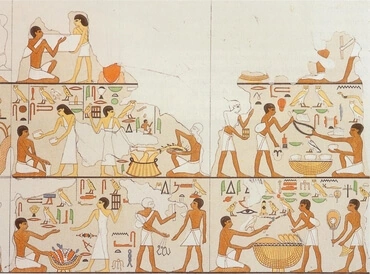1
METTITI una tromba al palato. Colui viene contro alla Casa del Signore, come un’aquila; perciocchè han trasgredito il mio patto, ed han misfatto contro alla mia Legge.
2
Israele griderà a me: Tu sei l’Iddio mio, noi ti abbiam conosciuto.
3
Israele ha allontanato da sè il bene; il nemico lo perseguirà.
4
Hanno costituiti dei re, non da parte mia; e creati de’ principi senza mia saputa; si hanno, del loro argento, e del loro oro, fatti degl’idoli; acciocchè sieno sterminati.
5
O Samaria, il tuo vitello ti ha scacciata: la mia ira è accesa contro a loro; fino a quando non potranno esser nettati?
6
Certo quel vitello è anch’esso d’Israele; un fabbro l’ha fatto, e non è Dio; il vitello di Samaria sarà ridotto in scintille.
7
Perciocchè han seminato del vento, mieteranno un turbo, non avranno biade; i germogli non faranno farina; se pur ne faranno, gli stranieri la trangugeranno.
8
Israele è divorato; ora sono fra le nazioni, come un vaso di cui non si fa alcuna stima.
9
Perciocchè essi sono saliti ad Assur, che è un asino salvatico, che se ne sta in disparte da per sè; Efraim ha dati presenti ad amanti.
10
Ora altresì, perciocchè han dati presenti ad amanti fra le genti, io radunerò quegli amanti: e fra poco si dorranno per la gravezza del re de’ principi.
11
Perciocchè Efraim ha moltiplicati gli altari per peccare, egli ha avuti altari da peccare.
12
Io gli avea scritte le cose grandi della mia Legge; ma sono state reputate come cosa strana.
13
Quant’è a’ sacrificii delle mie offerte, sacrificano della carne, e la mangiano; il Signore non li gradisce; ora si ricorderà egli della loro iniquità, e farà punizione de’ lor peccati; essi ritorneranno in Egitto.
14
Or Israele ha dimenticato il suo Fattore, e ha edificati de’ tempii, e Giuda ha fatte molte città forti; ma io manderò fuoco nelle città dell’uno, ed esso consumerà i tempii dell’altro.







